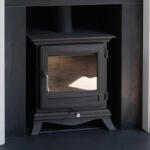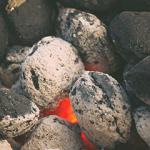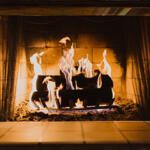

Would you prefer briquettes or brackettes?
This almost sounds like a question from a waiter or waitress at a fine-dining French restaurant! But it's actually about alternative fuel sources you might choose for your London home. Let's start with the term that has been around much longer. Briquette comes, not surprisingly, from the French term for a brick; describing, in this case, a solid mass of fuel. Both options offer interesting alternatives to coal or logs.
Popular briquette options
There is a range of excellent choices, each with its own specific characteristics. Natural peat briquettes, for example, are smokeless and deliver high heat but low ash results. They can easily be chopped into small sections, deliver a stunning bright flame, and of course that superb aroma. These are great choices for a wide range of open fires, stoves, chimineas, solid fuel cookers and more. Blazer briquettes are created from compressed sawdust gained from sustainable forestry. This avoids sparks and spitting as they burn, so they're useful if pets like to dream in peace in front of your open fire or wood-burning stove. Blazers tend to produce less tar, leading to cleaner flues. A third choice, including for stoves and (like blazers) even some AGA type ovens, are high-density eco fire briquettes. These are created from a variety of renewable raw components.
Moving on to brackettes
The term bracken describes a family of coarse ferns found throughout much of the UK. The word itself comes from the Old Norse language simply meaning fern. Traditionally, it has been used for animal bedding, which, when broken down, can then be used for fertiliser. It is a highly sustainable source of fuel (in fact, bracken grows on every continent except Antarctica). With its low moisture content, it burns both hotter and longer than oak, for example, and its ash is rich in potash. Many gardeners find this a useful bonus after using it in their log burners or open fires!
Making your choices
So, when choosing your fuel, both briquettes and brackettes are terrific alternatives. Why not try them out for yourself today?
